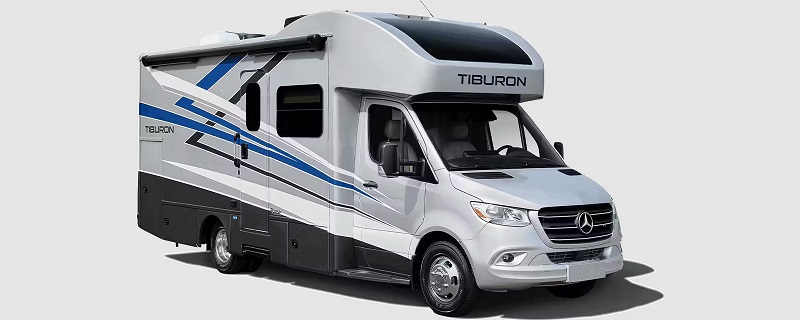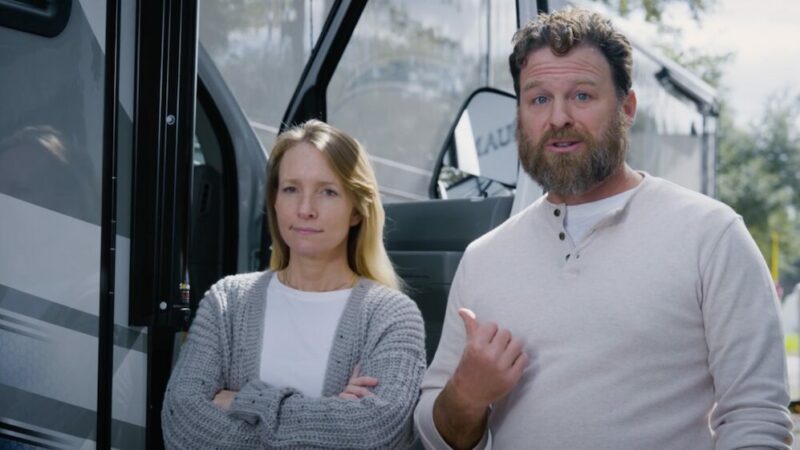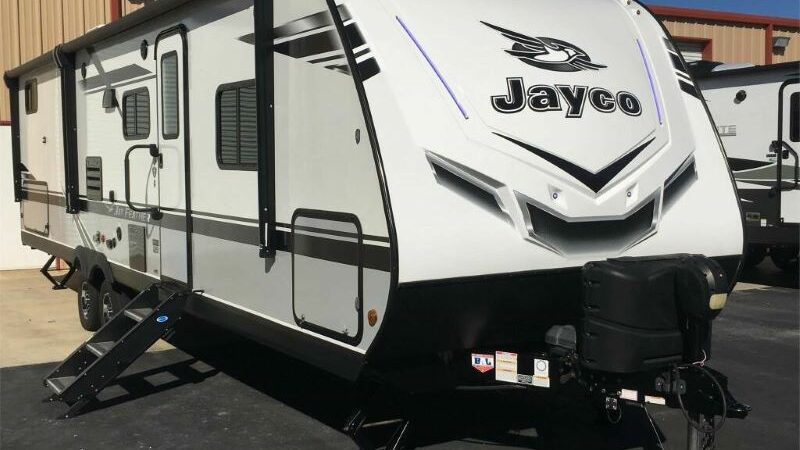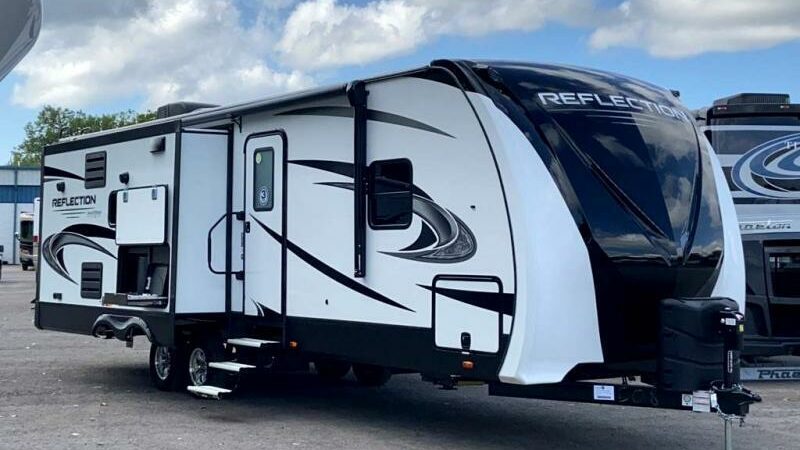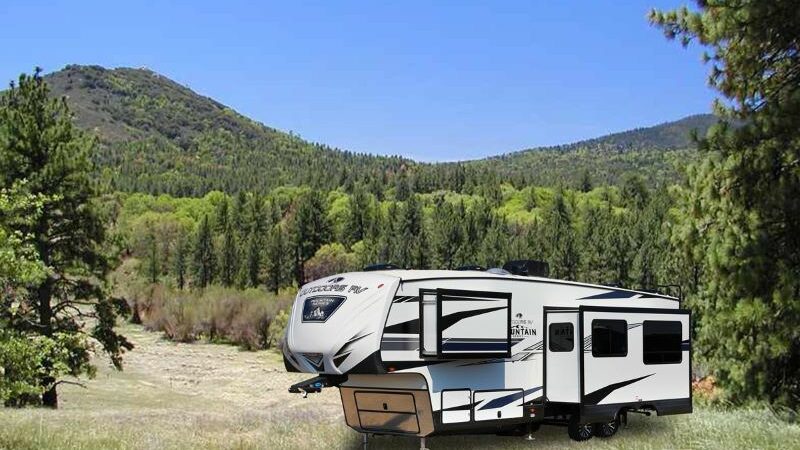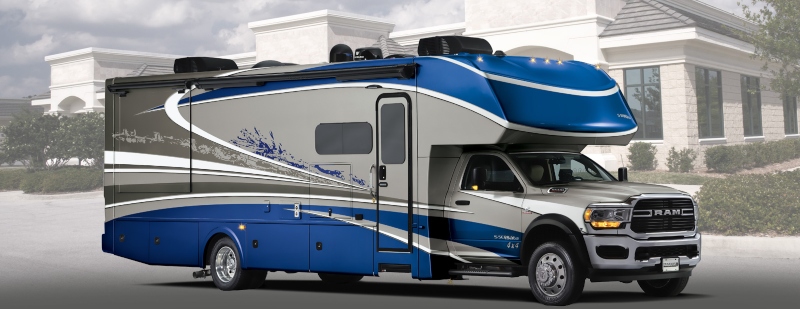Does A Deer Warning Whistle on an RV Really Work?
Thanks for your support! If you make a purchase using our links in this article, we may make a commission. And, as an Amazon Associate, I earn from qualifying purchases. See the full disclosure here.
The question regarding adding a deer whistle on an RV is something worth considering when you travel. If you have ever hit a deer, you know the kind of damage they can do to your vehicle, whether it is a car or an RV.
My father-in-law had a well-antlered buck jump into the path of his truck camper and crashed into the window. Along with being frightened, my father-in-law had some minor injuries from the antlers coming through the window. The window was smashed, and the cab-over section was damaged. He was on a four-lane highway, not a country road.
I have also hit a deer with a Ford Explorer, which took out the front grill and the radiator underneath. Neither I nor my father-in-law had a deer warning whistle. Truly, in my own case, there was no time to even swerve the car or think about what to do. The question is whether a deer whistle on an RV or car would have worked to deter the deer.
Let’s take a closer look at deer whistles and what they can or cannot do.
How Do I Keep Deer Away From My RV While Driving?
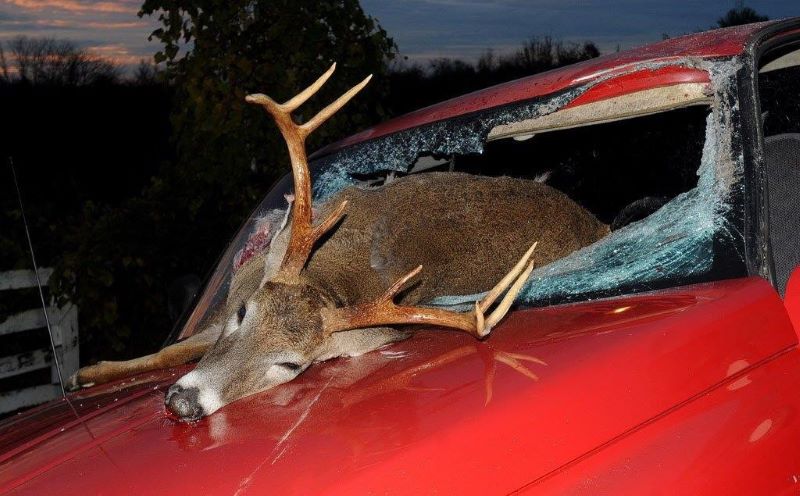
There are several things you can do to try and avoid deer while driving, which include staying off heavily wooded roads. Practicing defensive driving while on these types of roads might be better than finding ways to keep deer away from your RV.
These wild animals are unpredictable, and when it is mating season, you really have to watch out. Here are a few things you can do if you are in an area with deer.
Before setting out, you can upgrade your headlights so you can see farther in the distance at night. LED headlights are a good option in place of traditional halogen bulbs.
If you are on a wooded road, there might be deer lurking in the trees. Slow down and be aware of your surroundings. Look for deer crossing signs, use your high beams when you can, and look for recently killed deer.
You can also safely assume that if you see one deer, there will be more to follow.
Of course, RVs require more stopping time and will sustain more damage if you hit a deer because of the fiberglass front.
How Do Deer Whistles Work?
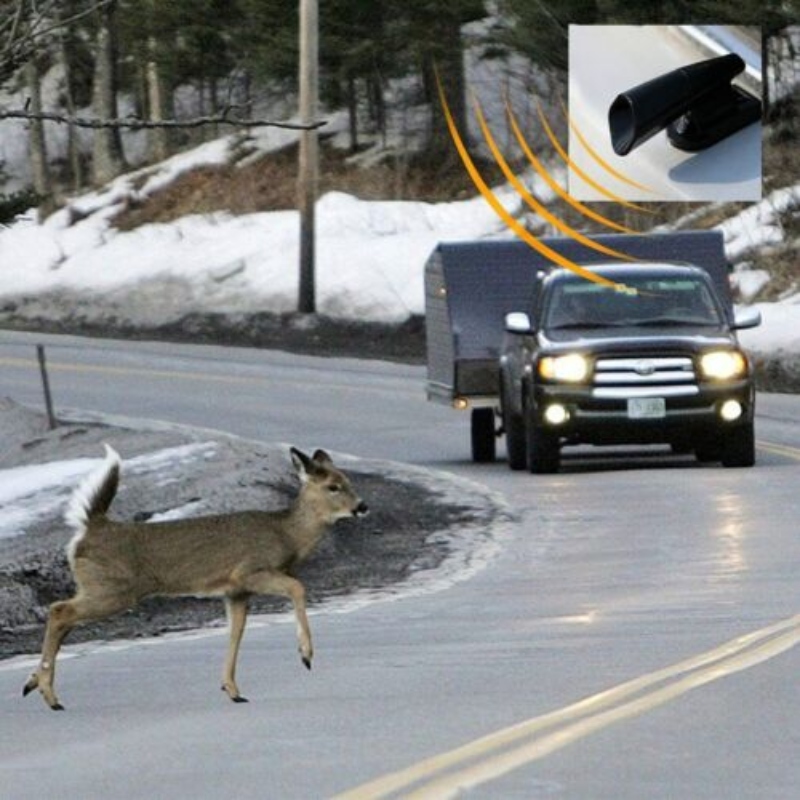
Deer whistles are powered by air moving through the whistle when the device is placed on the hood of the car or RV. There are deer whistles that are paired with different sounds for bucks and female deer. You must drive around 30 mph for the deer whistle to work.
Where Do You Put Deer Whistles on A Car And RV?
The deer whistle is placed on the hood or grill of the car or RV. Placing the deer whistle on an RV anywhere else, like behind the bumper, won’t give the device the airflow it needs. In order for the device to work, it needs to be in front of your vehicle and out in the open.
Placing the deer whistle for RVs on the roof could put it in harm’s way. It could get knocked off or damaged from low clearances or tree branches.
Why Not Honk at Deer?
There are mixed opinions about whether to honk at a deer or not. Some say that periodically honking can help scare the deer that might be near the road. Honking too much may confuse the deer and cause them to come closer to the road. It can also confuse other drivers on the road.
If you see a deer in the road, honking may work to scare it back into the woods. However, when you scare the deer, fight-or-flight responses are not predictable, and you could bring the whole herd into your path.
As for my deer encounter, I had no time to react, let alone honk.
Do Deer Whistles on Cars and RVs Really Work?
Deer whistles emit an ultrasonic sound that is not heard by humans. But according to research, it doesn’t have a great effect on deer either.
The range of the sound produced by air-activated deer whistles is around 16-20 kHz at speeds at or above 30 mph. According to recent data, deer whistles were not found to deter traffic encounters with deer.
What Do Deer Hate the Most?

While the use of aromatic plants such as lavender, rosemary, oregano, thyme, catmint, garlic, and chives might keep deer out of your garden, there really is no one solution that will keep a deer from jumping out in front of your RV or car.
Research also shows that deer are discouraged from going near certain areas frequented by predators such as coyotes and bobcats. Urine from these animals can be an effective repellent.
How these scents that are hated by deer can be utilized with a vehicle or RV has not yet been studied.
What Do I Do if I Hit a Deer with My Car or RV
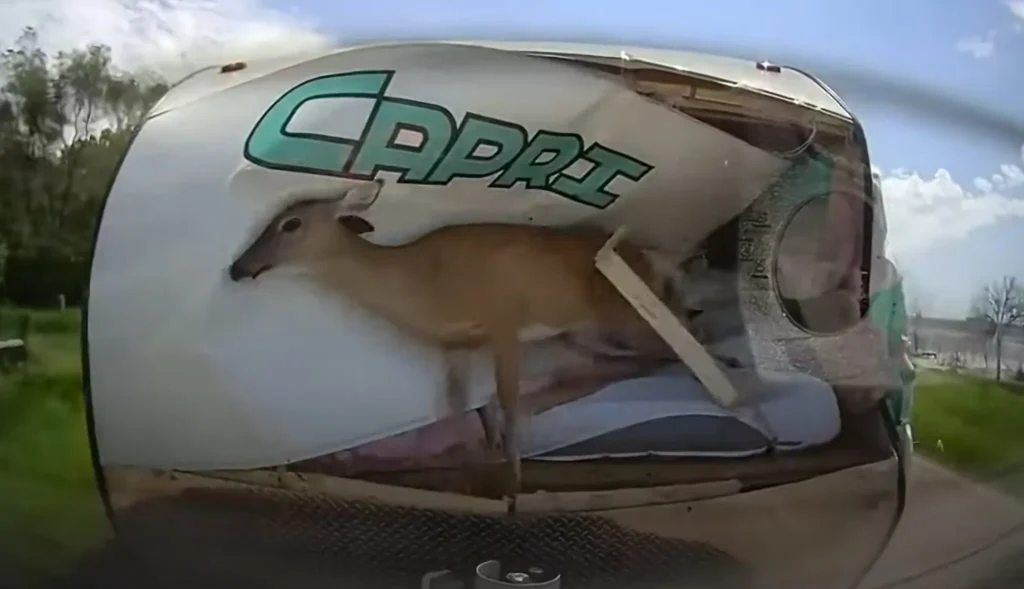
Despite all your preventative measures, you could still hit a deer. If you do, there are a few things you should remember. As with any accident, pull over to the side of the road, activate your hazard lights. Then set up your hazard triangles, and flairs on the roadside. This indicates to other drivers that they should slow down when they drive past the scene.
Make sure you and everyone in the car are safe. You should call the police, particularly if the deer is dead on the road. They will know how to remove the carcass and keep traffic slow while the road is cleared.
Of course, assess the damage to your RV and call your insurance company. Hopefully, the damage will be minor, and you can still drive to your destination. Take photos of the damage with your phone for the insurance company and your own records.
What’s The Best Deer Deterrent for Your Car And RV?
The best deer deterrent to keep your car and RV safe is to hone your defensive driving skills, particularly when on wooded roads where deer might be encountered.
Make sure you wear your seat belt. Also, stay in your lane. If you see a deer coming and do not try to swerve out of the way. Ending up in oncoming traffic will only make the problem worse. Apply your brakes evenly until you stop.
Make sure you watch for deer crossing signs and be alert at dusk and dawn when deer are more active and more likely to appear. Of course, drive at the posted speed limit or slow down a bit until you are out of the woods.
Encountering deer on the road is very likely in certain areas. My take on deer whistles is to do your research. Whether you decide to purchase one or not, still be ready to use your defensive driving skills, take your time, and keep your speed down. You are more likely to see the deer scamper off into the woods, rather than bounce off of your hood.
Related Reading:
1. Best Bug Repellents For Your RV Windshield
2. 15 RV Packing Tips for Beginners
3. Does Insurance Cover RV Windshield Replacement?
4. What Does RV Insurance Cover?
Terri Nighswonger and her husband Todd are full-time RVers and work campers. They have been living full-time in their RV for nearly three years with their Cavalier King Charles Spaniel, Newton, and their Minnie Australian Shepherd, Remi.
They originate from the Midwest but plan to enjoy the west for a few years, wintering in Arizona and summering wherever the road may lead. Writing is Terri’s passion, but she also loves hiking, kayaking, walking her dogs, and anything she can do outdoors.

Source: https://rvblogger.com/blog/does-a-deer-warning-whistle-for-rv-really-work/


